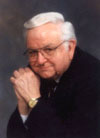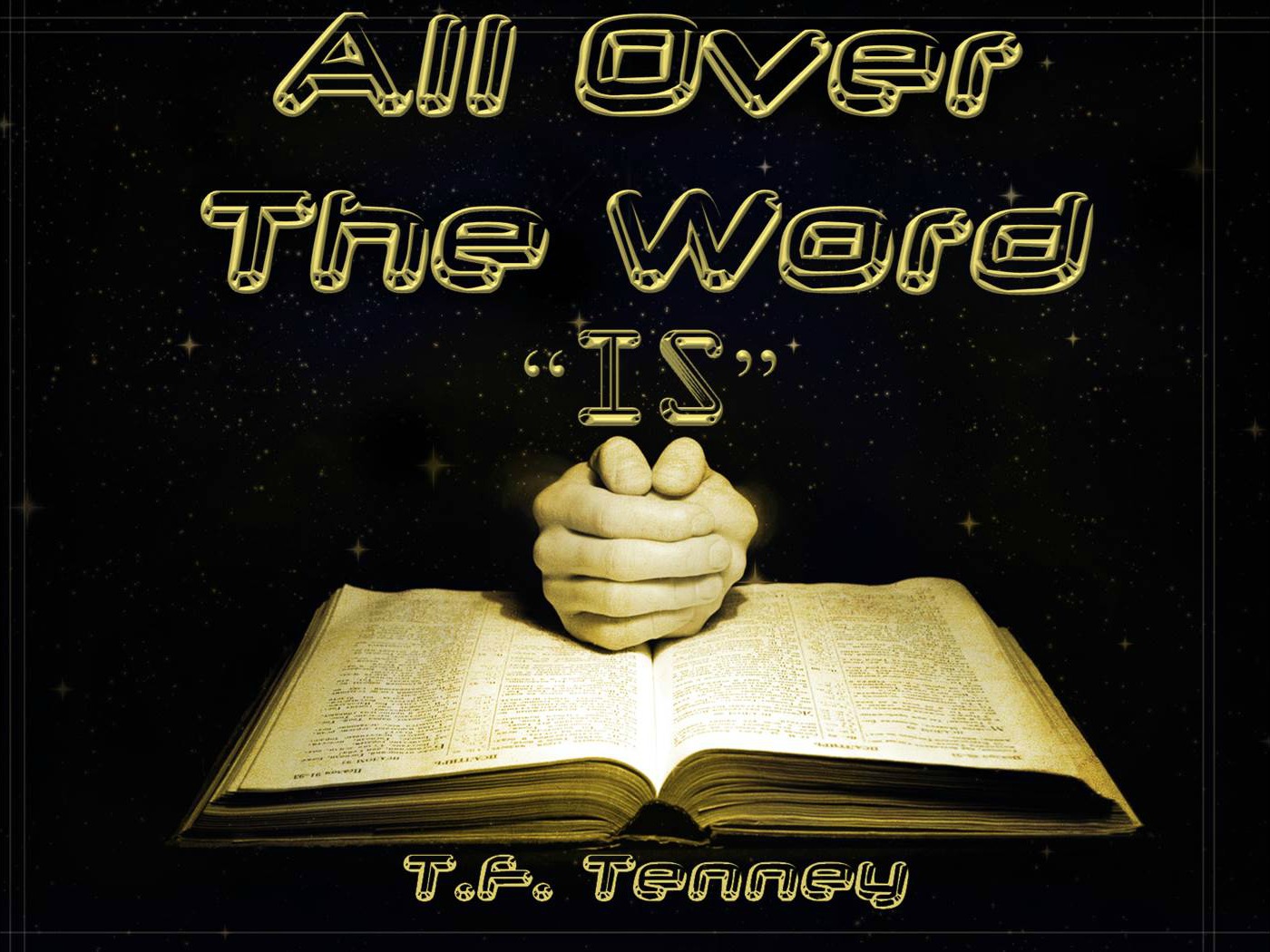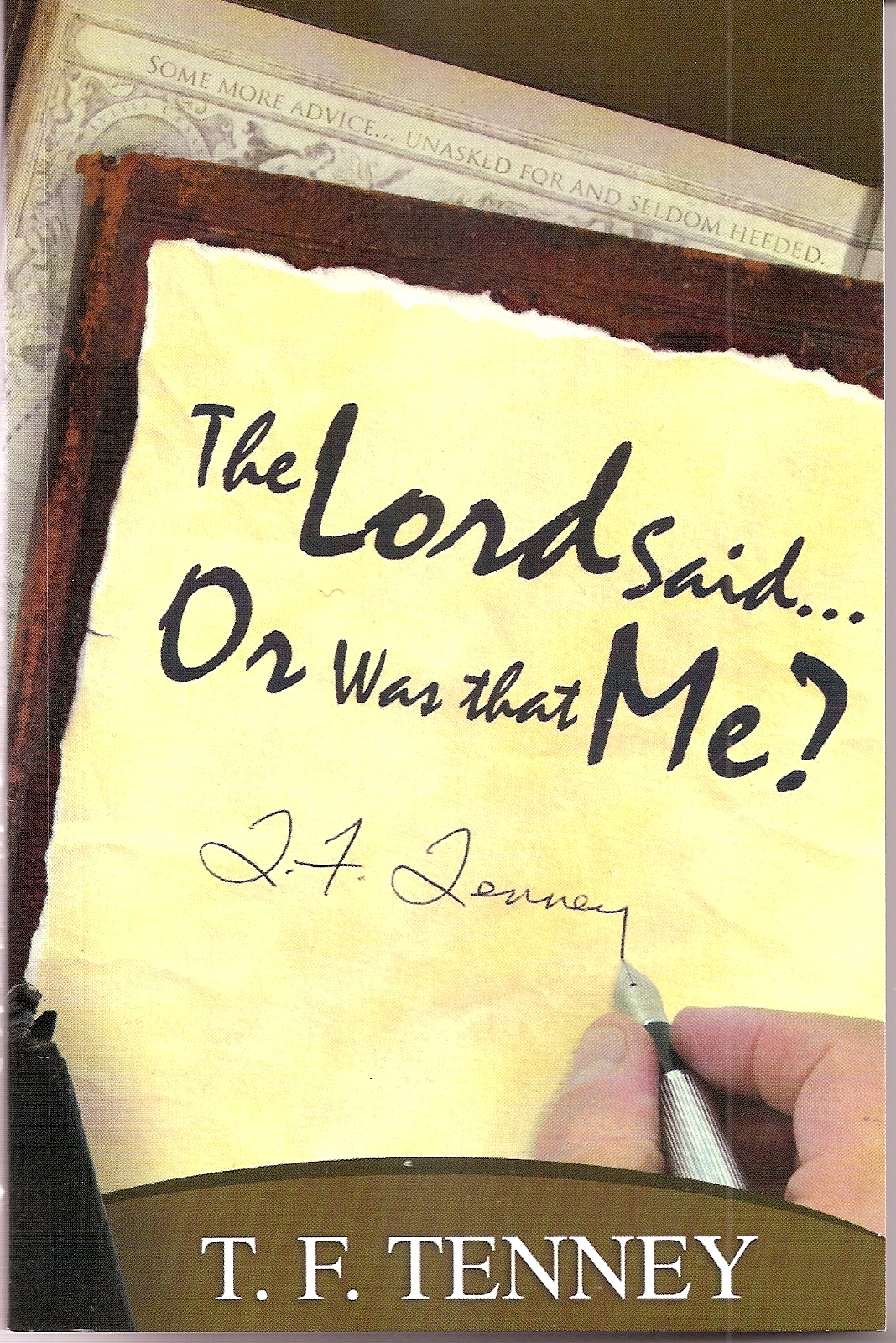
By T.F. Tenney
One of the ironies of the ages is to note some of the minute things men have allowed to separate them. The dilemma began in the garden. God left Adam and Eve with only one commandment to keep. Just one. There were vast riches and much fruit in the garden. However, He said, “Don’t eat of the fruit of. . . .” You know the story. Man couldn’t keep that one commandment. In Moses’ day, they couldn’t keep ten. And yet today, there are those who will stumble over the smallest of things and allow themselves to be separated not only from God but from one another. There’s an old adage that says, “If it matters little, make little of the matter.” I have often observed that men will overlook a hundred things you do right and stumble over your one infraction. Why is it that we can agree with one another on 95 percent of the main objectives of life and yet ignore that to hang up and withdraw over 5 percent?
Let’s get back to the breach that came over the word “is.” We’re familiar with the story of a German monk named Martin Luther. While climbing a set of stairs in Rome—on his knees—doing penance—he heard a thundering voice that said, “The just shall live by faith.” These words sparked a theological revolution. Europe was rudely awakened from its medieval slumber as Luther broke with Romanism and began to preach justification by faith. It marked the beginning of the Reformation. This was the first step back to full-blown apostolic authority.
There was another so-called hero of the Reformation. His name was Ulrich Zwingli. He hailed from Zurich, Switzerland. He, too, believed the simplicity of the gospel, broke with pagan Rome, and began his own mini-reformation. Zwingli’s preaching and theology leapt like a prairie fire through Switzerland.
Approximately ten years after the beginning of the Reformation a meeting was suggested between these two stalwarts of the message of justification by faith. The idea was that they might form some type of working agreement.
They met for four days in Marburg, Germany. They arrived at fifteen points of agreement—a brief “articles of faith” for the reformation principle. Believe it or not, Luther and Zwingli agreed on 14 of the points. However, there was the entirety of that fifteenth point. The hangup came on the Lord’s Supper. The two men could agree in principle, but they had one strong point of disagreement. They both agreed that Jesus Christ was present at this supper. The “how-to” of His presence was the hangnail. Luther declared that the presence was physical; Zwingli said, no, it was a spiritual presence—the presence resided in the memories of the worshipers. On the last day of the meeting, these two theologians faced each other for the grand finale. History says that Luther came into the room and wrote something in chalk on the table at which he was sitting. He then covered his writings with a cloth.
Zwingli came and threw out his final challenge. He asked Luther to find a single scripture that would indicate Christ was physically present in the bread and wine of communion.
Luther then uncovered the writing on the table. He had inscribed in chalk in bold print—”Hoc est corpus meum.” It was the Latin term for “this is my body.” These were Jesus’ words at the final supper.
Zwingli was well-versed in several languages. History records that he simply said, “Dr. Luther, Jesus didn’t speak Latin.” He then reminded Luther that in Aramaic, the language of our Lord, there is no verb “is” in that sentence. It would simply say, “This, my body.” Jesus, he declared,
meant the bread signified His body but was not literally His body. Luther then took out a knife and carved on the table, “Hoc est corpus meum.” He was adamant. He would not move. Consequently, the Reformation was split down the middle over the word “is.”
Today we smile at that and would venture to say, “How foolish!” The event happened almost five hundred years ago. Today Lutheran, Reformed, Calvinists, and many others agree that the communion is a memorial. They do not believe it is literally the body and blood of
Jesus. But, during that era, the word “is” was a watershed for the Reformation.
There are so many things that are cardinal to our apostolic doctrine. The absolute monotheism of God is undebatable. The incarnation of Jesus Christ, the God man, is without doubt. The power of His name in ever dimension is without compromise. The baptism of the Holy Spirit with its attendant evidence and continuing fruit and gifts are biblical mandates. A separated lifestyle from this world is a necessity. The infallibility of the Scriptures is a mandate. Why is it, then, when there is so much common ground we would seek to split hairs a mile long and then re-hair the split?
The fifteenth chapter of the Book of Acts and the council of the early church is a benchmark in biblical history and tradition. There was much debate. There way give and take. Finally, the lines were struck. It was declared that the ceremonial law, including circumcision, would not be a dividing line for the apostolic church, They did lay out some principles that the Gentiles were tc follow. But their decree was, “We will lay no unnecessary yoke upon them.” Note the word “unnecessary.” It leads us to know there must have been some things that were quite necessary. Just think, the early church could have been rent asunder and the Gentile world could have virtually been disinherited if an ancient rite performed on male children at eight days of age in Jewish history had prevailed. Cooler heads declared, “This is not germane to the gospel. We are going to stick to the principles.” With that, the church marched on to victory. The church in every age has had to face this always with the knowledge that compromise lieth at the door.
I wish that had been the end of it. It wasn’t. The day the Bolshevik revolution prevailed in Russia, the Russian Orthodox Christian Church was in their national assembly. They were debating over what color the threads of the priests’ garments should be, while the hordes of atheistic communism were overrunning their country. Russia sank into seventy-five years of political and spiritual darkness while the church debated an “is.” Morris Collin, in his book Include Me Out, told of trying to open the gate of his mission compound in Kenya only to find a dead man blocking the way. An autopsy showed the man had literally starved to death at the front door of a Christian mission compound. Collin went on to retrieve his mail. That day, his mail contained the report of the annual general conference of his church in Great Britain.
The biggest argument had been over what to do with the elements of the communion that were left over after the service. Would it be acceptable to feed communion crumbs to the birds? He said, “This is for the birds! With men dying at the front door of the compound in Africa. they argue over such nonsense! If this is Christianity; include me out!”
Let nothing distract you from the main power of the gospel—not compromise, not worldliness, nor personal imposition of a pet doctrine over a brother under the guise of truth, holiness, etc. This is a day of unprecedented revival. This is the most complicated society man has ever known. There will be differences of opinion. There were in Acts 15. If we have problems, let it not be over an “is.”
As one man observed, “The church was never meant to be a fortress in which we would stay and guard all the truths and the precious sacred things God has imparted unto us so the world would not spoil or ruin them. Rather, we have been given a commission to go out into the world and be salt and light.”
The above article, “All Over The Word ‘Is’,” is written by T.F. Tenney and was excerpted from the third chapter of Tenney’s book, The Lord Said…Or Was That Me?
This material is most likely copyrighted and should not be reprinted under any other name or author. However, this material may be freely used for personal study or research purposes.




1 thought on “All Over The Word “Is” (Entire Article)”
Comments are closed.